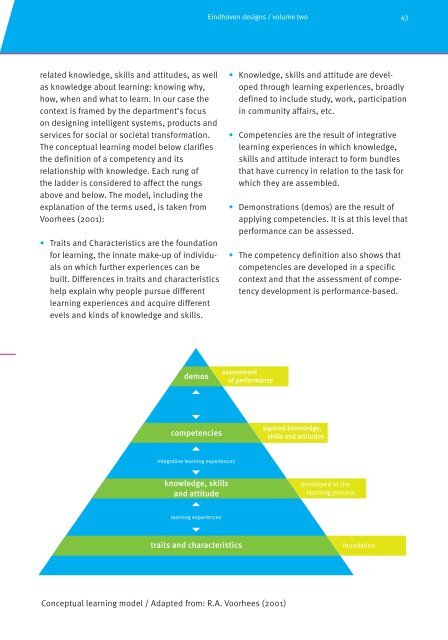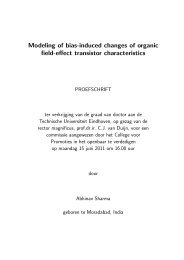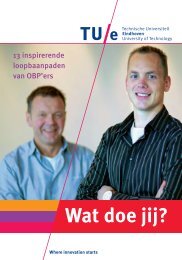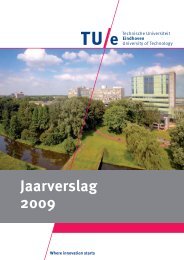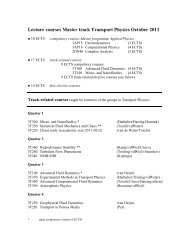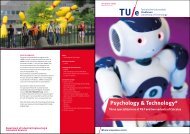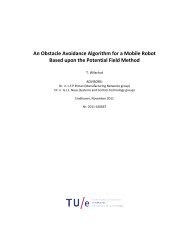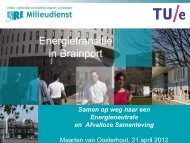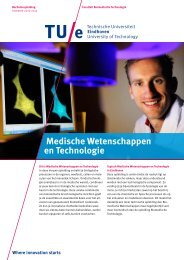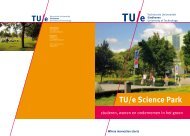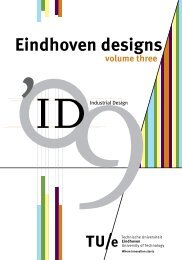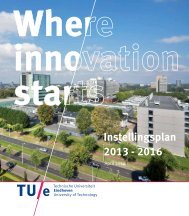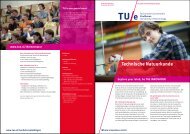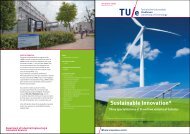Education guide 'Eindhoven designs' - Technische Universiteit ...
Education guide 'Eindhoven designs' - Technische Universiteit ...
Education guide 'Eindhoven designs' - Technische Universiteit ...
Create successful ePaper yourself
Turn your PDF publications into a flip-book with our unique Google optimized e-Paper software.
Eindhoven designs / volume two<br />
43<br />
related knowledge, skills and attitudes, as well<br />
as knowledge about learning: knowing why,<br />
how, when and what to learn. In our case the<br />
context is framed by the department’s focus<br />
on designing intelligent systems, products and<br />
services for social or societal transformation.<br />
The conceptual learning model below clarifies<br />
the definition of a competency and its<br />
relationship with knowledge. Each rung of<br />
the ladder is considered to affect the rungs<br />
above and below. The model, including the<br />
explanation of the terms used, is taken from<br />
Voorhees (2001):<br />
• Traits and Characteristics are the foundation<br />
for learning, the innate make-up of individuals<br />
on which further experiences can be<br />
built. Differences in traits and characteristics<br />
help explain why people pursue different<br />
learning experiences and acquire different<br />
evels and kinds of knowledge and skills.<br />
• Knowledge, skills and attitude are developed<br />
through learning experiences, broadly<br />
defined to include study, work, participation<br />
in community affairs, etc.<br />
• Competencies are the result of integrative<br />
learning experiences in which knowledge,<br />
skills and attitude interact to form bundles<br />
that have currency in relation to the task for<br />
which they are assembled.<br />
• Demonstrations (demos) are the result of<br />
applying competencies. It is at this level that<br />
performance can be assessed.<br />
• The competency definition also shows that<br />
competencies are developed in a specific<br />
context and that the assessment of competency<br />
development is performance-based.<br />
demos<br />
assessment<br />
of performance<br />
competencies<br />
aquired knowledge,<br />
skills and attitudes<br />
integrative learning experiences<br />
knowledge, skills<br />
and attitude<br />
developed in the<br />
learning process<br />
learning experiences<br />
traits and characteristics<br />
foundation<br />
Conceptual learning model / Adapted from: R.A. Voorhees (2001)


